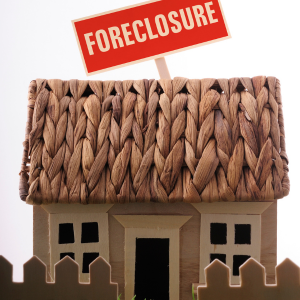
Understanding Foreclosure: Key Concepts and Definitions
In Ohio’s real estate market, understanding foreclosure is crucial for effectively selling a foreclosure home. Foreclosure occurs when a homeowner fails to make mortgage payments, leading the lender to seize and sell the property to recover the owed debt.
Key concepts in this process include the default notice, which is issued after a borrower misses several payments, and the subsequent pre-foreclosure phase, which offers homeowners an opportunity to settle their dues or sell the property before formal proceedings begin. Once foreclosure proceedings commence, properties are typically sold at auction or become bank-owned homes, also known as REO properties.
Each stage presents unique challenges and opportunities for sellers and buyers alike. In Ohio, judicial foreclosures are most common, where the court supervises the sale process to ensure all legal requirements are met.
Navigating the foreclosure process in Ohio can be complex, but gaining a thorough understanding of each stage can help homeowners make informed decisions when selling a foreclosure property. From the issuance of a default notice to the pre-foreclosure phase and eventual auction or REO status, every step requires careful attention to legal and financial details. Sellers who act promptly during the pre-foreclosure stage may be able to avoid long-term credit damage and even recover some equity. It’s also essential to be aware of Ohio’s judicial foreclosure process and key terms like the equity redemption period and deficiency judgment, which can significantly impact your options. If you’re facing foreclosure and need guidance on how to sell your home effectively, reach out to Comfort Living Buys Houses today for expert assistance tailored to your situation.
The Foreclosure Process: Step-by-Step Guide for Homeowners
Understanding the foreclosure process is crucial for homeowners looking to sell a foreclosure home in Ohio’s real estate market. The journey begins when a homeowner misses mortgage payments, prompting the lender to issue a Notice of Default.
In Ohio, lenders typically pursue judicial foreclosures, meaning the process goes through the court system. After receiving the Notice of Default, homeowners enter a pre-foreclosure stage where they can still attempt to remedy their financial situation or sell the property.
If no solution is found, the property moves to auction following a court judgment. During this stage, selling becomes challenging yet possible with effective strategies like pricing competitively and marketing aggressively to attract potential buyers quickly.
Understanding each step and its timeline allows homeowners to make informed decisions and potentially avoid losing their home entirely while navigating Ohio’s complex foreclosure landscape.
Legal Rights of Homeowners Facing Foreclosure in Ohio
Homeowners facing foreclosure in Ohio have specific legal rights that can significantly impact the process. Understanding these rights is crucial for those looking to effectively navigate the sale of a foreclosure home in Ohio’s real estate market.
In Ohio, borrowers have the right to receive a notice of default, which must inform them of their lender’s intent to foreclose and provide an opportunity to cure the default before proceedings begin. Additionally, homeowners may be eligible for mediation programs designed to facilitate negotiations with lenders, potentially preventing foreclosure.
The state’s judicial foreclosure process ensures that homeowners can present their case in court, allowing them an opportunity to rectify any discrepancies or dispute wrongful actions by lenders. Furthermore, Ohio law permits a redemption period during which homeowners may pay off the total amount owed to reclaim their property even after a foreclosure sale has been scheduled.
Being aware of these legal protections empowers homeowners to explore alternative solutions, such as loan modifications or short sales, even in the case of an HOA foreclosure, thus enhancing their ability to sell a foreclosure home on favorable terms within Ohio’s dynamic real estate market.
Assessing Your Financial Situation Before Selling a Foreclosed House

Before embarking on the journey of selling a foreclosed home in Ohio’s competitive real estate market, it’s crucial to thoroughly assess your financial situation. Understanding the financial implications is essential, as it can significantly influence your strategy and potential profit.
Begin by evaluating any outstanding mortgage debt, liens, or additional financial obligations tied to the property. It’s important to consider costs such as legal fees, taxes, and possible repairs that could enhance the property’s marketability.
Consulting with a real estate professional who specializes in foreclosures can provide valuable insights into current market trends and pricing strategies specific to Ohio. Additionally, understanding your credit standing can aid in financial planning post-sale.
By having a clear picture of your financial landscape, you can set realistic goals and make informed decisions that maximize returns while minimizing risks associated with selling a foreclosed home in Ohio’s real estate market.
How to Determine the Value of Your House in Foreclosure
Determining the value of a foreclosure home in Ohio’s real estate market requires a strategic approach. First, conducting a comprehensive comparative market analysis (CMA) is essential, as it helps identify similar properties recently sold in the area.
Working with a local real estate agent who specializes in foreclosures can provide valuable insights into current market conditions and pricing trends. It’s important to consider factors such as the property’s condition, location, and any outstanding liens or legal issues that may affect its value.
Utilizing online real estate platforms to research recent sales and assess neighborhood dynamics can also be beneficial. Additionally, getting a professional appraisal offers an objective evaluation of the home’s worth, taking into account its unique characteristics and potential for appreciation.
Adjusting for necessary repairs or renovations that could enhance the property’s appeal is another critical step. Understanding these elements allows sellers to set a competitive price that attracts buyers while maximizing return on investment in Ohio’s dynamic foreclosure market.
Preparing Your House for Sale During the Foreclosure Process
When preparing a foreclosure home for sale in Ohio’s competitive real estate market, it’s crucial to focus on enhancing the property’s appeal to potential buyers. Start by ensuring the house is clean and clutter-free, as a well-organized space can make a significant impact during showings.
Consider making minor repairs and updates that can increase the home’s value without substantial investment, such as painting walls with neutral colors or replacing outdated fixtures. Curb appeal is essential; therefore, maintain the exterior by mowing the lawn, trimming hedges, and planting flowers to create an inviting first impression.
It’s also advisable to address any necessary maintenance tasks, like fixing leaky faucets or repairing broken windows, to prevent deterring interested buyers. Additionally, staging the home with tasteful furniture and decor can help prospective buyers envision themselves living in the space.
For those looking to sell quickly and avoid further foreclosure complications, working with a company that buys homes in Springfield, OH, and surrounding cities can offer a fast and straightforward solution. Collaborating with an experienced real estate agent who understands Ohio’s foreclosure regulations and market trends can further enhance your chances of selling at a favorable price.
Marketing Strategies for Selling a House in Foreclosure Quickly
When selling a foreclosure home in Ohio’s competitive real estate market, effective marketing strategies are crucial to ensure a quick sale. First, it is essential to price the property competitively by analyzing comparable sales and current market trends in Ohio.
High-quality photography and virtual tours can highlight the property’s best features, attracting potential buyers who might not be local. Utilizing online platforms like Comfort Living Buys Houses can increase visibility, reaching a broader audience quickly.
Targeted social media advertising can also be particularly effective in generating interest from prospective buyers interested in foreclosures. Additionally, partnering with an experienced real estate agent who understands the nuances of Ohio’s foreclosure market can provide invaluable insights and connections to serious investors and first-time homebuyers alike.
Hosting open houses or virtual walkthroughs specifically for cash buyers or investors can create urgency and facilitate faster transactions.
Legal Considerations When Selling a House in Ohio Under Foreclosure

When selling a foreclosure home in Ohio, understanding the legal considerations is crucial for a smooth transaction. Sellers must be aware of Ohio’s specific foreclosure laws, which dictate the process and timeline for selling such properties.
It’s essential to work closely with a knowledgeable real estate attorney who specializes in foreclosure sales to ensure compliance with state regulations and protect your interests throughout the process. Additionally, sellers should familiarize themselves with the rights of homeowners during foreclosure, including any redemption periods or opportunities to cure defaults, as these can impact the sale timeline.
Accurate disclosure of property conditions is also mandated by Ohio law to avoid future legal disputes. Understanding these legal aspects not only helps facilitate a successful sale but also minimizes potential liabilities and legal challenges when navigating Ohio’s real estate market.
Tax Considerations Regarding Selling a Foreclosed House in Ohio
While selling a foreclosure property in Ohio, it is very important to understand the tax considerations for both sellers and buyers. In Ohio, settlement sales or foreclosure sales usually have significant tax ramifications that need to be planned for.
Sellers may encounter possible income tax liability if the forgiven mortgage debt balance exceeds the fair market value of their home. The Mortgage Forgiveness Debt Relief Act allows specific exceptions where forgiven debt can be considered taxable income. Moreover, capital gains taxes may also apply if sellers owned the property for over two years and it was not their primary home.
For buyers, there are property taxes related to purchasing foreclosures since they may inherit any existing property tax liens tied to the house. Understanding these complex overlapping obligations can simplify either selling or buying a foreclosure home within the relatively busy real estate market of Ohio.
Reviewing with well-informed real estate consultants alongside an experienced lawyer can guarantee compliance on both state and federal levels while avoiding unplanned financial burdens stemming from too many open tabs left unchecked.
How the Sale of a House Under Foreclosure is Affected by Bankruptcy
Foreclosure properties in Ohio’s housing market can be profoundly affected by bankruptcy due to legal issues and added layers of processes. When homeowners declare bankruptcy, an automatic stay is enforced, which pauses any active foreclosure proceedings.
Potential buyers will likely lose interest due to the complicated negotiations resulting from the stall. Moreover, it is vital to distinguish between Chapter 7 and Chapter 13 bankruptcies since both differ greatly in asset liquidations, including property.
In Chapter 7 bankruptcies, some assets may be seized, such as non-exempt homes that will be sold after the stay is lifted to pay creditors; this would fall under lifting the stay. On the other hand, Chapter 13 permits owners to restructure their debt, which prevents foreclosure if followed with a repayment plan sanctioned by the court.
With both federal laws concerning bankruptcies and state-specific laws on foreclosures in Ohio, real estate agents are required to tread very carefully if they intend to stay within these boundaries. It becomes impossible for fruitful closing results to take place without proper communication with everyone involved: homeowners, creditors, buyers, lawyers, and other relevant parties must all work together regardless of how difficult these conditions seem for streamlined settlements.
How Do Foreclosure Sales Work in Ohio?
Ohio’s real estate market functions around foreclosure sales, which follow a precise legal framework to balance the interests of both lenders and borrowers. When homeowners are unable to pay their mortgage, lenders typically initiate a foreclosure process that ends with a sheriff’s sale of the property.
Foreclosed homes are put up for public auction, and buyers are invited to place their bids on them. It is essential for bidders to perform due diligence on the home and its title prior to attending the auction, as they risk inheriting hidden liabilities.
Both sellers and buyers in Ohio need to be aware of certain state laws governing foreclosure, including timelines and receipts of notifications, among other rules applicable to each party dealing with a distressed property, such as notice periods or auctions. For any sellers looking forward to auctions, energetic competition must be factored into purchase prices offered at such events.
Other effective measures include providing all prospective buyers full disclosures on status reports showing indicators detailing conditions and clearing date outlines; aggressively promoting bidding competitions by setting reserve prices higher, tailored to attract reasonable returning margins; and setting minimum price thresholds enabling expanded approaches called meeting buyer’s expectations, predicting better numbers, thereby encouraging investment opportunities available targeting lower versus midrange appraisal values. JsonProperty-marked.
Can I Sell My House While I’m in Foreclosure?

Selling a house without a realtor while in foreclosure in Ohio is not only possible but can also be a strategic move to mitigate financial loss. If you’re facing foreclosure, it’s crucial to act swiftly and understand your options.
The Ohio real estate market offers opportunities for homeowners to sell their property before the foreclosure process is completed. To effectively sell a foreclosure home, consider enlisting the help of a real estate agent experienced in distressed properties.
They can guide you through pricing strategies that attract potential buyers and negotiate with lenders on your behalf. Additionally, staging your home to highlight its best features and implementing targeted marketing strategies can increase buyer interest.
For a faster and less stressful solution, you may want to work with a cash-for-houses company in Ohio and nearby cities, which can provide a quick sale and help you avoid foreclosure altogether. Understanding Ohio’s specific foreclosure laws and timelines is essential, as it allows you to plan accordingly and maximize your chances of a successful sale.
What is the 120-Day Rule About for Foreclosure?
Real estate agents operating in Ohio’s market should be familiar with the 120-day rule concerning foreclosure. This regulation specifies that lenders must wait a minimum of 120 days after granting a mortgage to start the foreclosure procedure, as long as there has been a default on payment.
Borrowers are still given some time to come up with alternatives such as modification of terms, short sales, or refinancing. Knowledge of this foresight can help both parties involved in buying and selling properties using deductive reasoning relating to negotiations toward avoiding foreclosures altogether.
While devising timely selling plans coupled with appropriate advertising aids directed at potential buyers, realtors need to keep this timeframe in mind in order for clients not to miss out on the listing period. Strategic employment tailors offer them opportunities while working within Ohio’s distressed homes marked market limits, increasing chances that will allow deals claiming profit post competitively dealing with property direct sales closing firm outcomes using mastered techniques, evergreen negotiating skills, and proven reliable patterns that actually work; alter changing criteria sets, listed conditions, breaching closing contracts, success through compliance, finalizing bound assurances, and omnipresence.
What is the timeline for foreclosing on a property in Ohio?
If you’re looking to sell a foreclosed home in Ohio, it’s important to know that there are certain timelines associated with the foreclosure process. In Ohio, the lender typically initiates the foreclosure by filing a complaint against someone who has stopped paying their mortgage. Understanding how selling a house with a mortgage during foreclosure works can help you navigate the process more effectively.
Most of the time, foreclosures take anywhere from six months to more than a year. This is based on how busy the courts are, any additional problems that crop up, and other specific factors pertaining to your case. A court must handle each case due to Ohio being one of the judicial foreclosure states; this doesn’t help speed things up either.
A seller will be able to shorten this period by working with an experienced real estate agent who understands local laws and practices, so homes can be sold with less hassle. Also, staying updated on Wisconsin policies will enable more effective selling plans during state-mandated changes that might affect beginning selling prices or suggest lower asking amounts during such periods.
Understanding competitive dynamics, such as knowing when regions have emerged, works for foreclosures, allowing them to borrow dynamic pricing approaches utilized in auction-like places, making sure homes do not sit idle for extensive numbers of days, while setting realistic expectations. Work towards selling multiple houses. Building experience not only ensures income for builders but also provides income, leading buyers to strategically place purchases, ensuring funding purposes, generating money, and making repayments unnoticeable or simple.
Looking to sell your house? Desire quick, stress-free sales without the need for complex repairs? Comfort Living Buys Houses can help! We provide fair cash offers and take care of all details throughout the process. Have questions or ready to sell? Get in touch with us at (937) 915-3737, no obligations on our offer. Start today!
Helpful Ohio Blog Articles
- Selling A Foreclosure Home In Ohio’s Real Estate Market
- Selling Your House Amid Divorce Proceedings In Ohio
- Guide To Selling Your Ohio Home Without A Realtor
- Ohio’s Inheritance Laws For Real Estate
- Selling A House In Probate In Ohio
- Selling A House With A Mortgage In Ohio
- Selling Your Ohio Home As-is Without Repairs
- Closing Costs Without A Realtor In Ohio Real Estate
- Successfully Selling A Mold-infested House In Ohio
- Understanding Ohio HOA Foreclosure: Can Your Home Be Taken?
- How To Successfully Sell A Tenant-occupied House In Ohio
- Essential Guide To Taxes When Selling Your Home In Ohio

| FORECLOSED HOMES | MORTGAGE DEFAULT | FORECLOSING | MORTGAGES | MORTGAGE LENDERS | ENTER A JUDGMENT |
| LAWYER | AUCTIONED | MARKET PRICE | MONEY | SHORT SELL | INFORMATION |
| DEBTOR | DEFAULTED | DEFAULTING | SHERIFF’S OFFICE | SHERIFF’S OFFICE | LITIGATION |
| LAWSUIT | CIVIL LAWSUIT | SHERIFF SALE | EVICTION | MARKETING CAMPAIGNS | SUMMONS |
| HUD | HUD’S | TERMS OF USE | REFINANCE | PRIVACY | LOSS MITIGATION |
| HOMELIGHT | DATA | TRIAL | SUMMARY JUDGMENT | STATUTE | JUDGE |
| DEED | CONTRACTUAL RIGHTS | REAL ESTATE INVESTOR | NOTHING | NONPROFIT | DIVORCE |
| DEFAULT JUDGMENT | THE PROPERTY IS | TO AVOID FORECLOSURE | OF THE PROPERTY |
